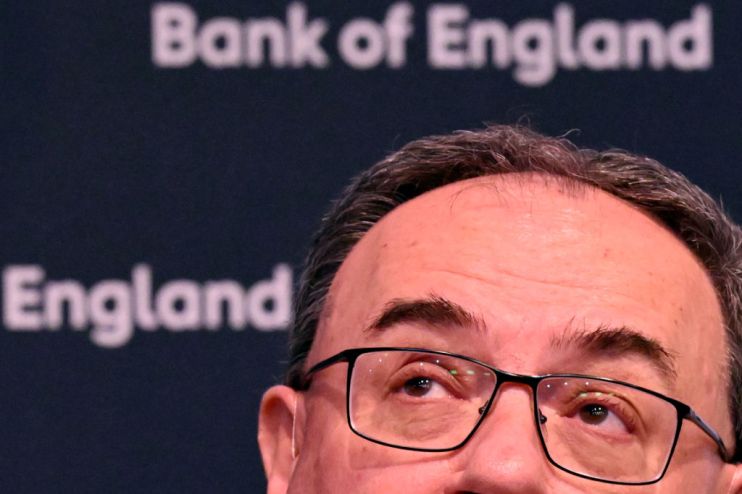Bank of England sends interest rates to 14-year high but slows hike cycle to 50 points

The Bank of England today sent interest rates to their highest level since October 2008, although it slowed the pace of increases to avoid unnecessarily intensifying a looming recession by squeezing households and businesses’ finances.
Threadneedle Street’s monetary policy committee (MPC) voted 6-3 in favour of a 50 basis point rise to 3.5 per cent, a climb down from last month’s 33-year high 75 point jump.
The move was in line with market expectations and means the Bank has now kicked borrowing costs higher nine times in a row.
Today’s announcement also comes around a year since the Bank’s first rise in this hiking cycle – a 15 point move from a record low 0.1 per cent.
Governor Andrew Bailey, who voted for the 50 point rise, and the rest of the MPC have been forced to pivot from stimulative policy that has propped up the UK economy since the financial crisis to tightening aggressively to tame a historic inflation surge.
Despite the rapid scaling in rates, the Bank said there is “evidence” of workers demanding big pay rises and businesses hiking prices rapidly which could lead to “greater persistence” in inflation.
The Bank will “respond forcefully” if these upward price pressures stick around, it said in today’s rate statement.
Bank of England has hiked rates aggressively this year

Prices have climbed 10.7 per cent over the year to November, among the quickest rates in four decades, although down from 11.1 per cent in October.
Economists now think the inflation surge has passed its peak and that the rate will steadily fall in 2023, although there is uncertainty over whether it will return to the Bank’s two per cent target, where it has been on average since the Bank was made independent in 1997.
Policymakers are trying to whittle down price rises by making it more expensive for households and businesses to borrow and more attractive to save.
In theory, the Bank’s nine successive rate increases should rein in demand and price rises.
Economists reckon inflation has passed its peak

The Bank and other monetary authorities are now stepping back from aggressive rate rises to avoid heaping too much pressure on households and businesses than necessary to get inflation back to their two per cent targets.
Two MPC members, Dave Ramsden and Jonathan Haskel, switched from voting for a 75 point rise last month to a smaller jump this month “point[ing] to an emerging broad-based consensus that the terminal rate is approaching,” Samuel Tombs, chief UK economist at Pantheon Macroeconomics, said.
Monetary policy takes time to influence an economy, making it hard for central banks to measure whether changes in interest rates are steering inflation toward their target.
Rate setters Swati Dhingra and Silvana Tenreyro wanted to keep borrowing costs unchanged, the first time any MPC members have wanted to sit tight since the Bank’s first hike a year ago, while Catherine Mann backed a larger 75 point jump.
“Lags in the effects of monetary policy” convinced Dhingra and Tenreyro to keep rates at three per cent until more evidence emerges unveiling how the economy has responded to previous rises.
Britain is expected to tip into the longest recession in a century, driven by households cutting spending in response to high inflation eroding their incomes.
The Bank is worried it could make that real income squeeze worse by kicking rates too high, dealing unnecessary long-term damage to the UK economy.
Last night, the US Federal Reserve slowed from four successive 75 point rises to 50 points. The European Central Bank followed in the Bank and Fed’s footsteps and opted for a lower rise today, but said rates will still have to rise “significantly”.
Analysts said Britain’s inflation surge looks sticker than the US and eurozone’s as it is suffering from a tight jobs market and higher energy prices.
As a result, “the MPC will want to see more concrete and significant signs that activity is weakening, the labour market is loosening and actual wage growth is slowing before calling time on the interest rate hikes,” Paul Dales, chief UK economist at Capital Economics, said, adding rates will peak at 4.5 per cent next year.